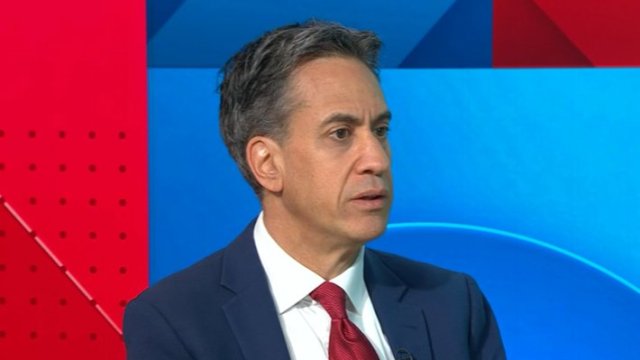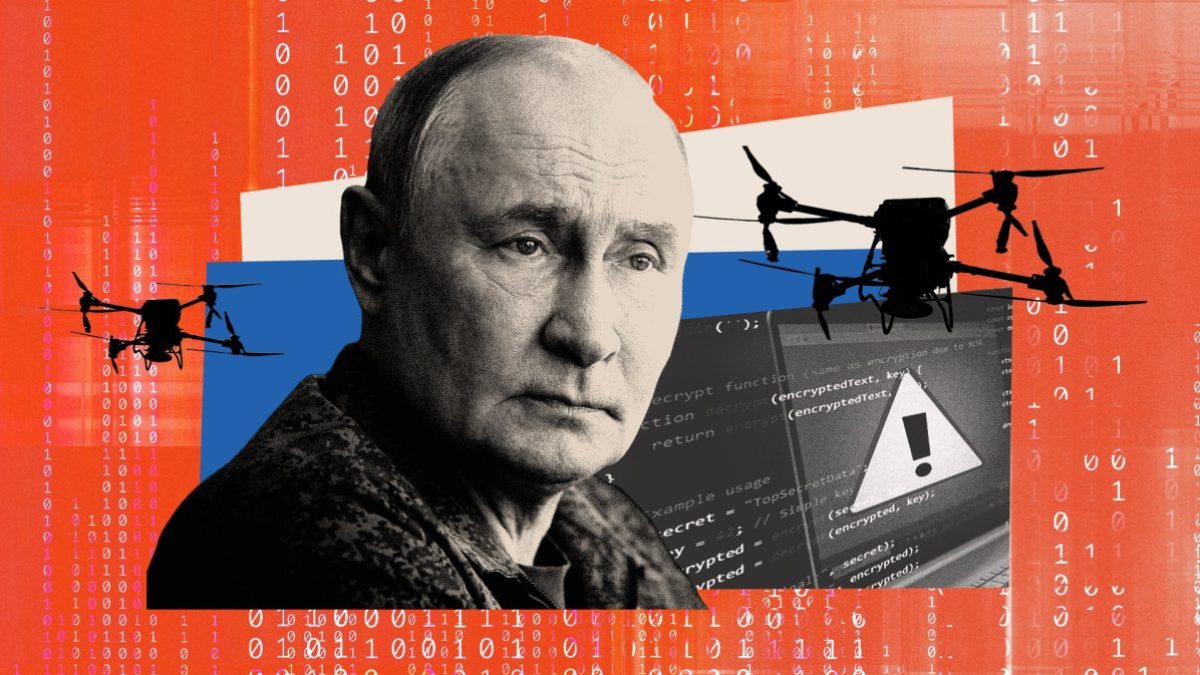The British public should be prepared for “widespread war in Europe” within the next three to four years, military experts have said.
Russia’s increasingly audacious incursions into Eastern Europe risk spilling over into an all-out “hot” conflict that engages Nato, while Vladimir Putin’s current “grey war” activity of sabotage, cyber attacks and disinformation is expected to be “on steroids” before the end of the decade.
The chairman of the UK’s National Preparedness Commission, Lord Harris, told The i Paper that Britain needed to be better prepared, both militarily and across society, for a widespread conflict of this nature happening in the next few years.
New FeatureIn ShortQuick Stories. Same trusted journalism.
This includes stockpiling emergency supplies to be used in the event of a war or major attack on critical national infrastructure, such as water, electricity or transport networks.
Harris, a Labour peer, said Britons needed to prepare for their lives “being changed or likely to be changed in the foreseeable future”, including having 72 hours worth of provisions if there was a major attack on infrastructure or a power cut caused by a hostile state
He suggested that the Government should make its “Prepare” website – which offers advice on readiness for emergencies such as floods and power cuts – more “in your face” and run regular ad campaigns on radio, TV and social media, as well as lessons for schoolchildren.
Russia is ‘committed to havoc’
With no end in sight to the war in Ukraine, over the past two months Russia has ramped up incursions of drones and fighter jets into other European nations – with suspicious drone activity as far west as Denmark.
On Thursday, MI5 chief Sir Ken McCallum warned Moscow was “committed to causing havoc and destruction” around the world, and that British security services and police had in the last year “disrupted a steady stream of surveillance plots with hostile intent, aimed at individuals Russian leaders perceive as their enemies”.
Giving evidence to Parliament’s joint committee on the national security strategy earlier this week, Harris said of the threat from Russia: “I am quite struck by the fact that, whenever I talk to people in our military, they are expecting potentially widespread war in Europe within a very short time frame – three or four years.”
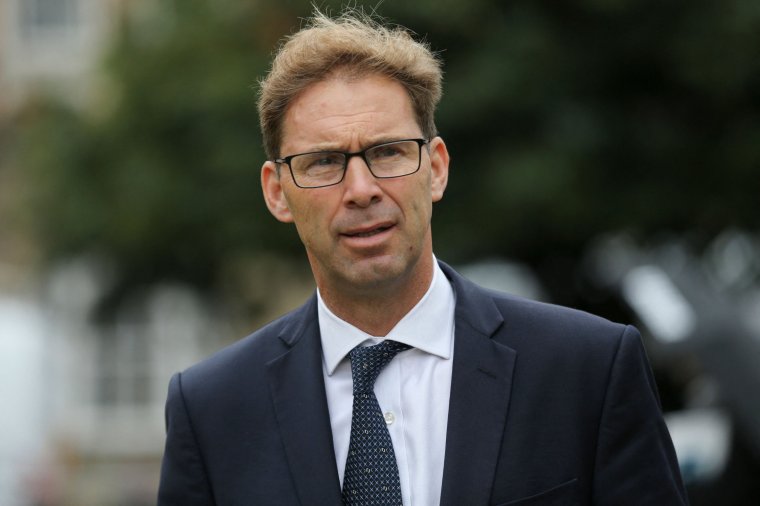 Former defence minister Tobias Ellwood (Photo: Isabel Infantes/AFP/Getty)
Former defence minister Tobias Ellwood (Photo: Isabel Infantes/AFP/Getty)
Former defence minister Tobias Ellwood told The i Paper this assessment “fits” with the conversations he had had with military people, but predicted it would be more likely “grey-zone rather than direct conflict”.
Ellwood said this would be “what we have now but on steroids: more cyber attacks, cutting undersea cables, assignations, incursions, and economic challenges as we fight over energy and mineral access, as well as proxy wars in Africa”.
Referring to the fire at an electricity substation near Heathrow in March, which led to the closure of the airport for nearly a day, as well as other similar blazes at substations, Harris said: “We must be concerned about the vulnerability of our critical infrastructure.
“We know that it’s aged, hasn’t had a very good record of maintenance, and of course, it was also designed for rather different conditions, in terms of the climate that it’s now facing.”
He said that even if these were not caused by hostile states, which would be instead a “very interesting coincidence”, a hostile adversary could say “look, you can bring down Heathrow airport without too much trouble’ – these then become a target, and we don’t have a systematic arrangement for protecting things like that.”
How Nato is ramping up its defence
As the threat of a hot war has risen in recent weeks, Nato has increased its patrols over its eastern border with Russia. Last week, RAF surveillance aircraft flew a 12-hour mission to monitor the frontier following drone and jet incursions by Russia over Poland, Estonia and Denmark.
Harris told The i Paper: “There is an expectation that, however the Ukraine war goes forward, Russia will continue to apply pressure on the rest of Europe, on the West.
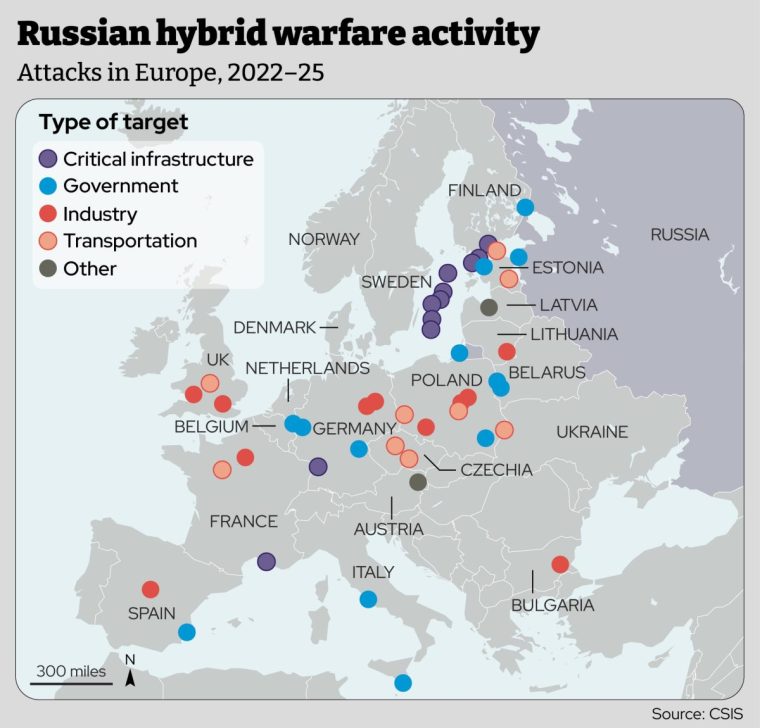
“Certainly the Estonians, Finns and so on are very concerned about the incursions that they may get. There have been massings of troops and alleged exercises in the vicinity of some of the borders.
“So there is quite a significant fear that within the foreseeable future, depending who you talk to – it’s all their own personal judgements – they talk three, four, five years… something else will happen.
“But what we’ve also seen is a significant ramping up of the grey-zone attacks. We’ve seen acts of sabotage in different parts of Europe.”
Britain is ‘ill-prepared for conflict’
Harris said it might be difficult for the UK to declare at what point this grey-zone activity goes from a “normal” level of noise or “difficult-to-attribute things going on” to the point of conflict that would need Nato to invoke Article 1 – where states would need to agree to back off from the brink of all-out war.
The peer said that military chiefs of staff had been warning that “our ability to operate, for example, in the way that Ukraine does, has still got a long way to go”.
The Strategic Defence Review published in June proposed a ramping up of military preparedness, including a new Defence Readiness Bill to provide the Government with powers to mobilise reserves and requisition industry to make more use of homeland resources.
Harris added: “We are still, compared with many other nations, ill-prepared not only for conflict, but for all the other things that are on the risk register, including climate-related things, and that we really ought to be making much more of a national effort on preparedness and readiness in general terms, not just in terms of the threats from hostile states.
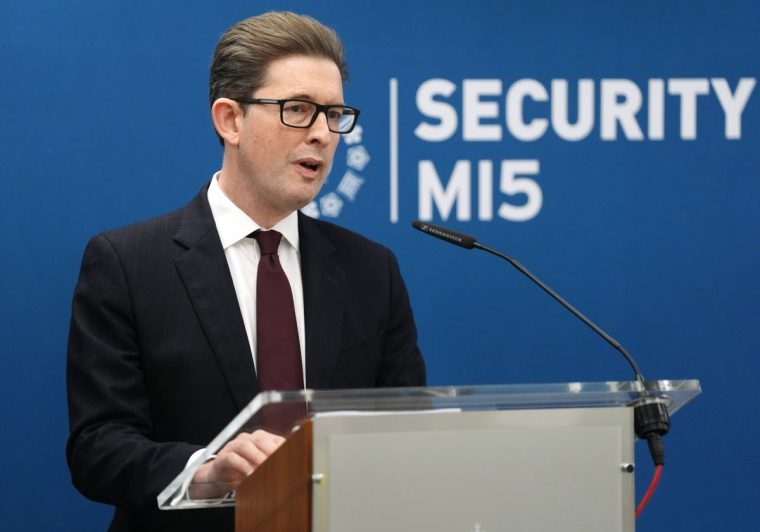 Director General of MI5 Sir Ken McCallum delivers his annual speech at thne agency’s HQ in London (Photo: Jonathan Brady/PA)
Director General of MI5 Sir Ken McCallum delivers his annual speech at thne agency’s HQ in London (Photo: Jonathan Brady/PA)
“I suspect if you spoke to most members of the public, they wouldn’t see this as something where their lives are being changed or likely to be changed in the foreseeable future.
“But we are undoubtedly closer to widespread war than we probably have been for 60-plus years. We have seen the escalation of things that have happened.”
Shadow defence secretary James Cartlidge said there was a “huge gulf between Labour’s rhetoric and reality on defence”.
He added: “For all Starmer’s claims on defence, Labour have simply not shown the urgency the threat requires. The threat we face is now… but Labour’s defence promises deliver at best, in a decade.”
Emergency lessons in schools
Harris said that the Government’s Prepare website was “not in your face, it’s not something that everybody recognises”.
He added: “The reality is, something on a website, which actually you might not be able to access in the event of certain sorts of emergencies if the power goes off – it’s probably not enough.
“And that ought to be reinforced by leaflets and pamphlets, by regular spots on radio, television, social media. It just ought to be a part of everyday life.
“It ought to be something that’s taught in schools. We teach our children how to cross the road, we’re increasingly teaching children how to be safe online. Well it ought to be: ‘How well prepared is your household?’”
Are we already at war with Russia?
Last month Dame Eliza Manningham-Buller, the former head of MI5, said Britain may already be at war with Russia due to the extent of cyber attacks and other grey zone activity.
Natia Seskuria, associate fellow for international security at think tank Rusi, said she agreed with Manningham-Buller and added: “This so called war with Russia has not started right now with this certain degree of escalation, but Russia has been waging the war against the West for many, many years.
“And this involves a range of hybrid activities, such as sabotage operations, cyber attacks, disinformation, the attempts to influence domestic politics in multiple western countries by interfering into elections and various political, domestic political issues.
“But recently we have seen a certain degree of escalation that we haven’t seen before.
“I do not think we are close to some sort of all out war between Russia and the West, but I think that Russia is clearly signalling that it is willing to escalate the tensions.”
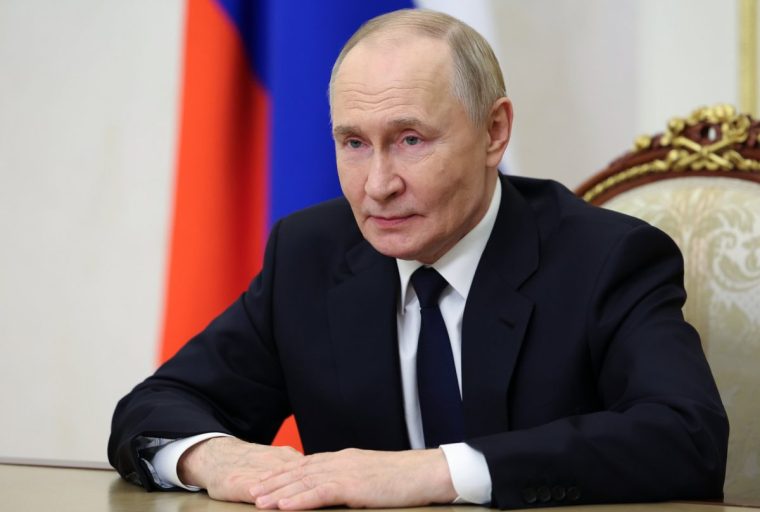 Russian President Vladimir Putin (Photo: Alexander Kazakov/Kremlin/AP)
Russian President Vladimir Putin (Photo: Alexander Kazakov/Kremlin/AP)
She added: “I believe that they want to test to what extent Nato unity is still strong, especially in light of certain questions around to what extent the US is still committed to protecting its Nato allies.
“And secondly, I think Russia wants to signal that it is still strong, that it has a capacity to extend the war beyond Ukraine, something that Nato’s allies on the eastern flank have been especially worried about.
“And by doing so, I think Putin believes that he can have a better negotiating leverage when it comes to ending the war in Ukraine on his own terms.”
If Russia keeps violating Western airspace Nato does not have many options other than shooting down Putin’s warplanes – which would be treated as an act of war, Seskuria said.
However Russia, “as much as they want to test Nato unity, don’t want to end up in a war directly with Nato” due to the current state of its own military. “Russia is playing a very dangerous game right now, by testing these boundaries of Nato unity.”
A Ministry of Defence spokesperson said: “Britain is entering a new era of warfighting readiness, driven by the biggest sustained boost in defence spending since the end of the Cold War.
“We are delivering on the Strategic Defence Review by investing £6bn in munitions this Parliament, including £1.5bn in an ‘always on’ pipeline for munitions and building at least six new energetics and munitions factories in the UK, creating British jobs and boosting British exports.
“We’re also investing in new technology, taking lessons from Ukraine to put the UK at the leading edge of defence innovation, and investing £1bn in a digital targeting web to speed up battlefield decision making, targeting and destroying enemy threats quicker.”
Your next read
